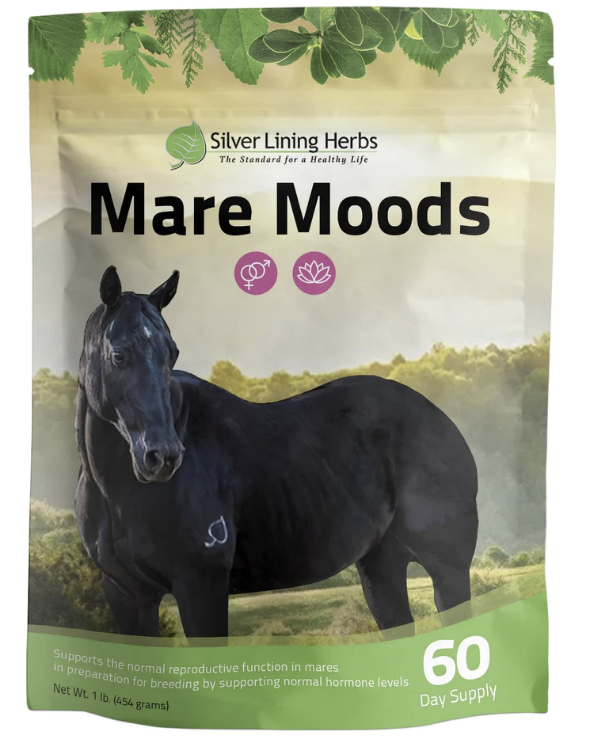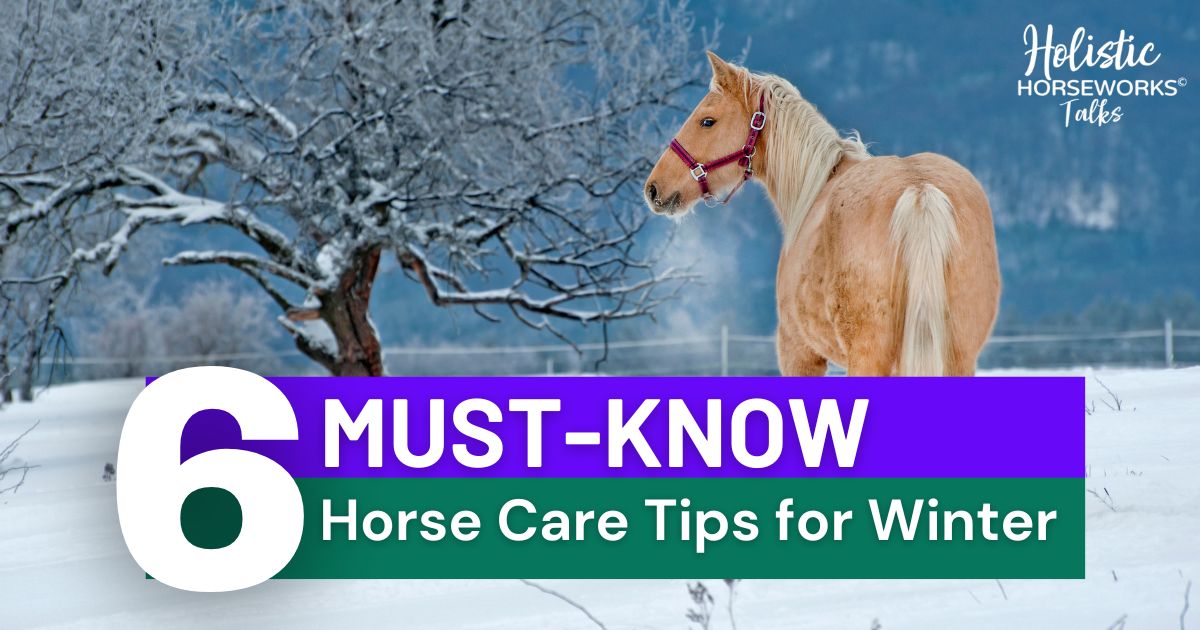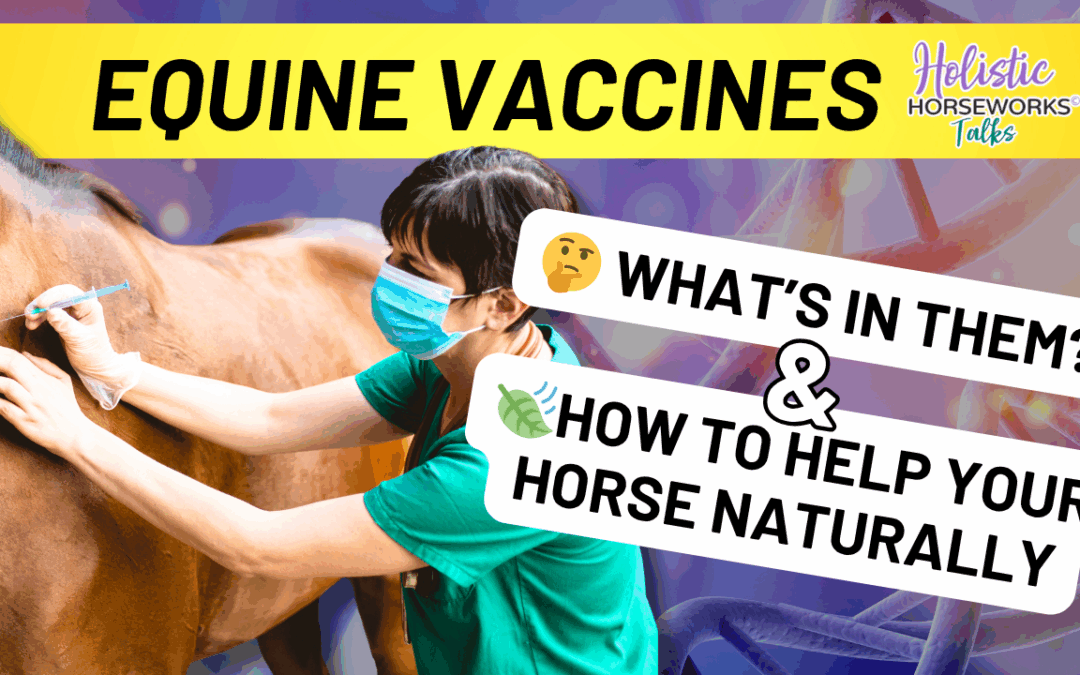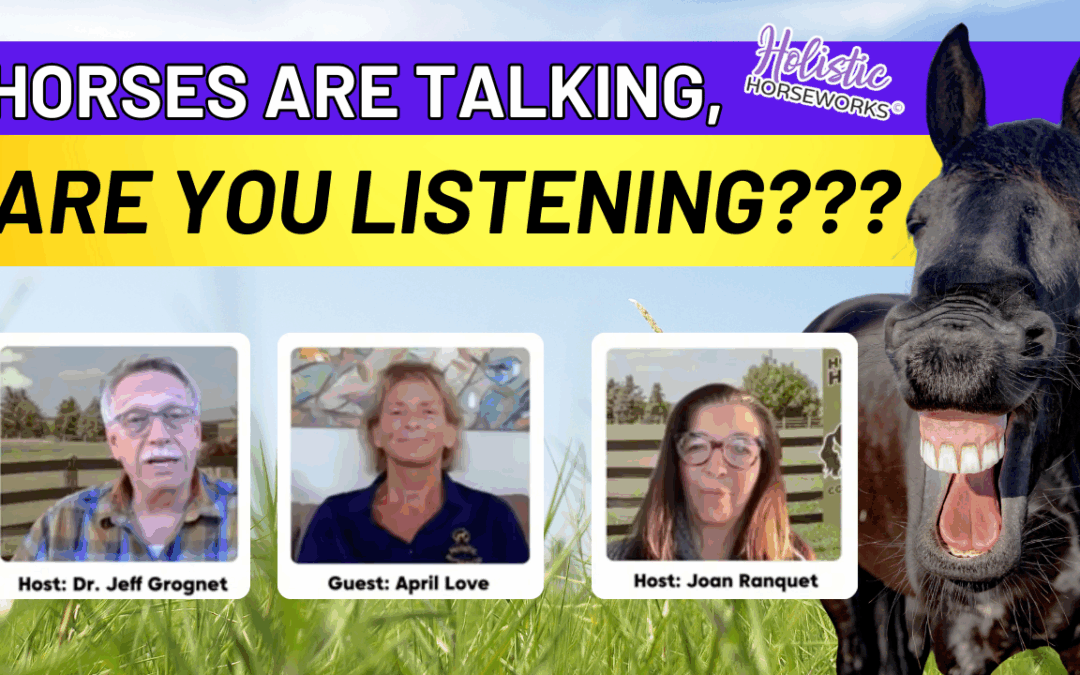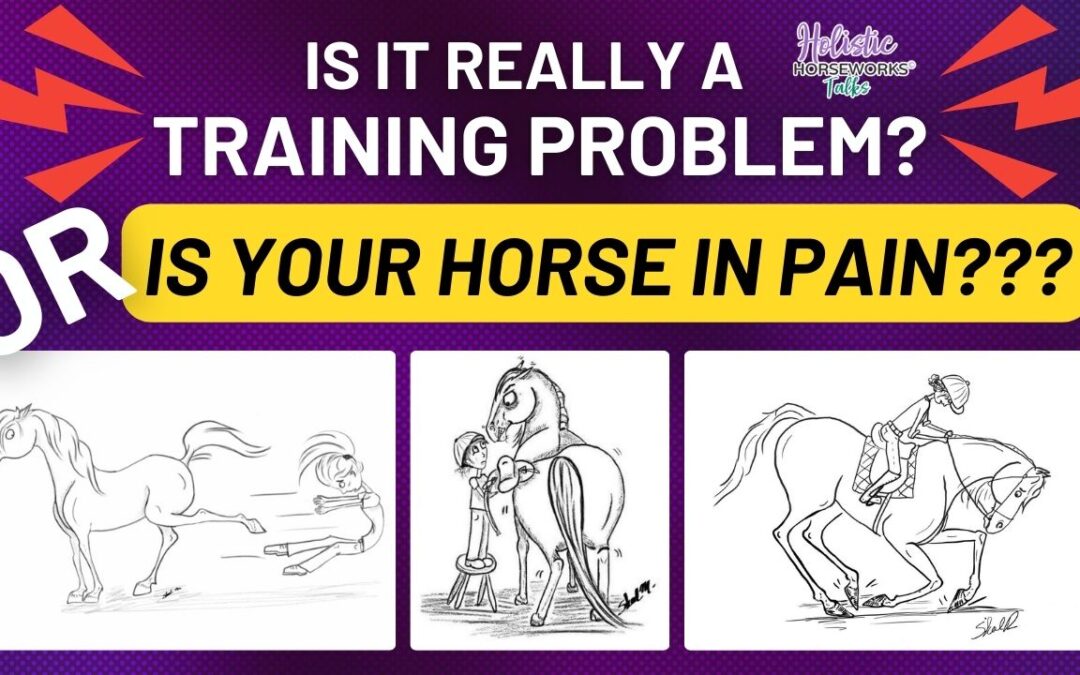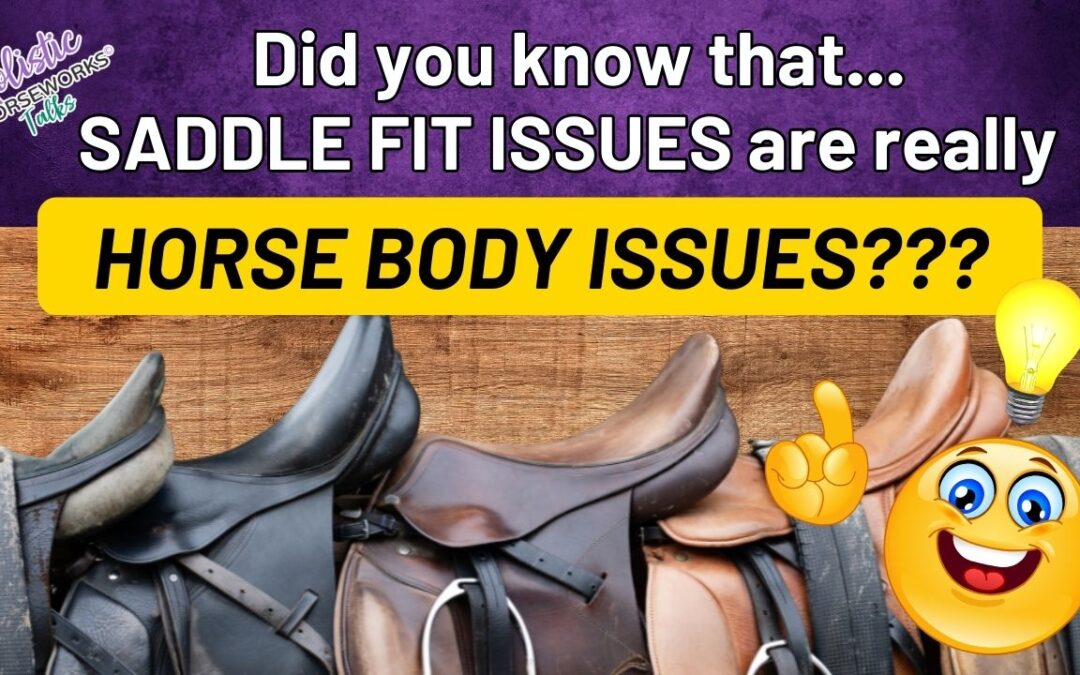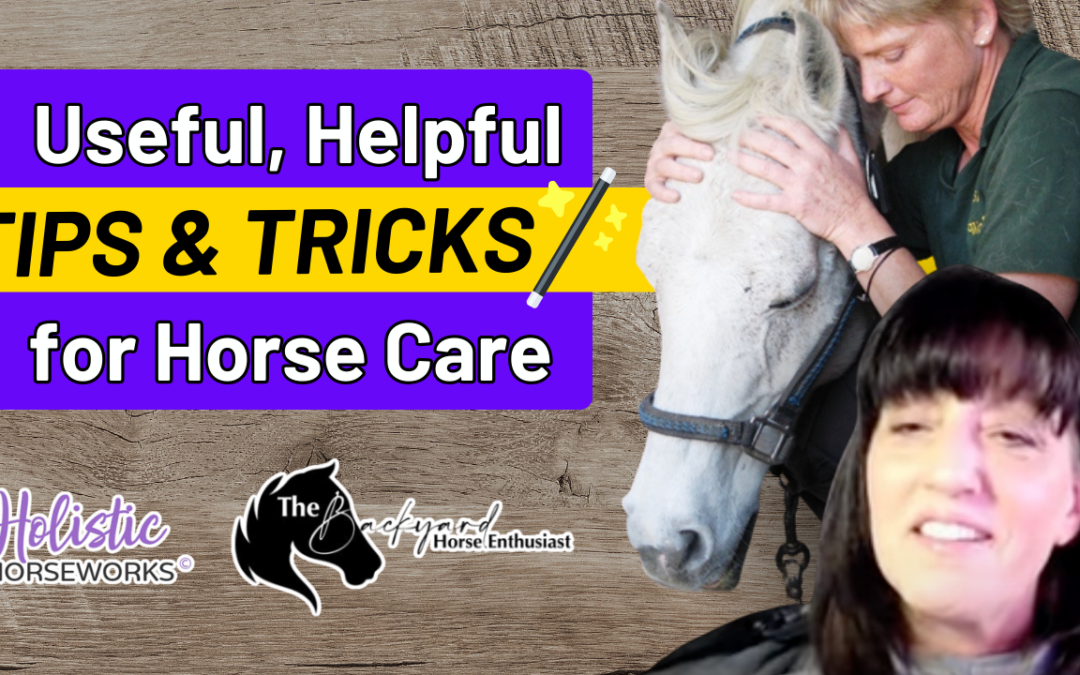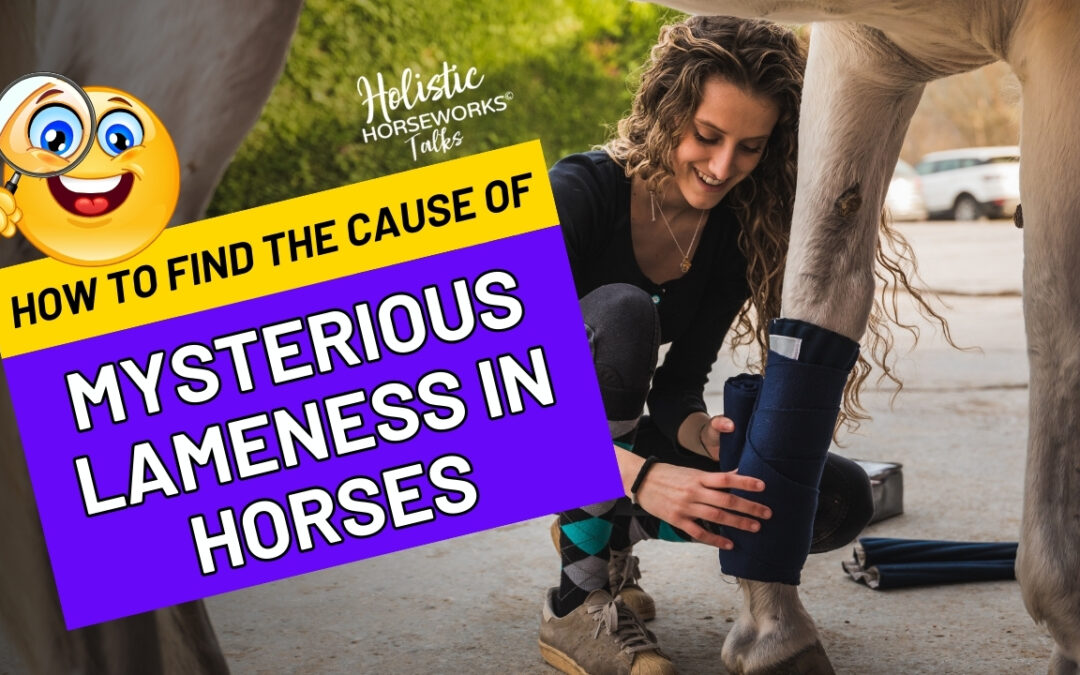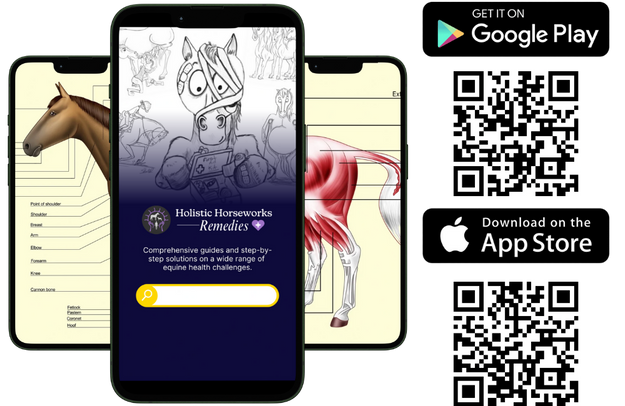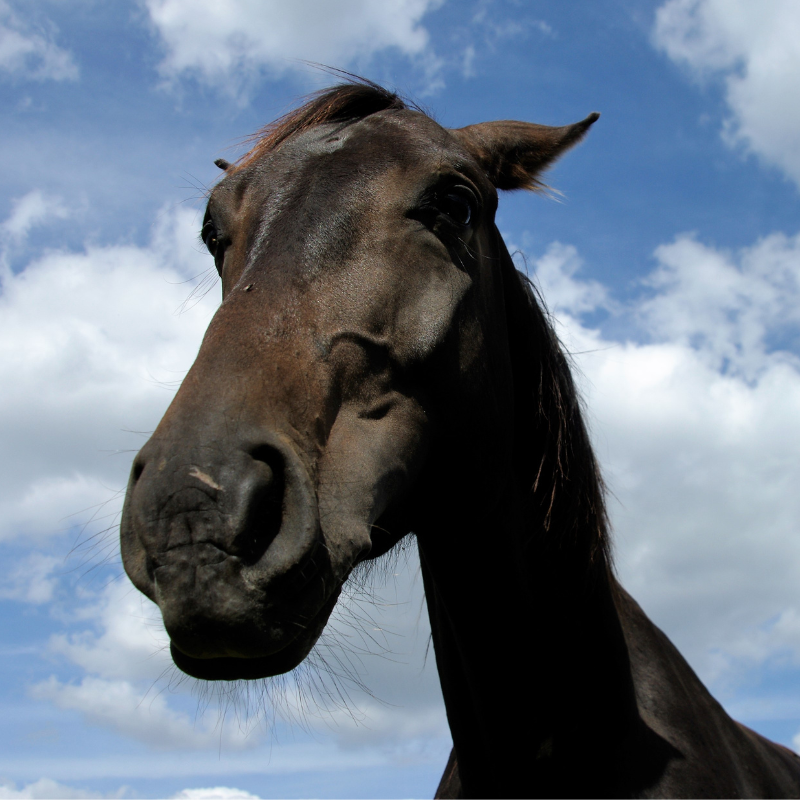
Do you have a “Moody Mare?”
In this episode of Holistic Horseworks Talks, April Love discusses ways to handle moodiness in mares. The main concern is that the moody behavior may affect interactions with other horses, and impact performance at horse shows or events.
By understanding your mare’s specific needs, balancing her hormonal system, and addressing any physical discomfort, it becomes possible to improve her behavior and overall well-being. Similar to humans, horses can become irritable when in pain.
Episode Transcription
Expand to read more...
Lillian: Hi, this is Lillian. I’m here with April Love. I have a question about mares. It’s summer time. So they’re cycling.
We had an incident where we had a mare that was just being moody.
00:31:22
All the other horses she was with were geldings at the time.
00:31:26
And she just wanted to be horrible. What can I do to help this mare not be so moody?
April 00:31:33
So, you know, just like us when we’re in pain, you can be cranky and snappy.
00:31:38
You know?
00:31:39
So first I would try, you know, my horse yoga program just to make sure in her body that she’s more comfortable.
00:31:47
And I have a free horse yoga video, and they’re just five basic stretches to do every day.
00:31:53
So first, you know, I would do that.
00:31:56
I know that if they’re cycling really strong, I know some vets will put a marble in there which will kind of trick the uterus to think like they’re pregnant, so they’re not, you know, squirting and peeing and, you know, doing that in front of every gelding when you’re trying to at a horse show and you’re trying to get in the ring in there, squatting and presenting, you know, for a gelding or stallion next to them, it can be quite irritating.
00:32:21
I also know that Silver Lining Herbs has a really good product called Mare Moods.
00:32:27
It’s a moody mare supplement, and I’m not quite sure of all the ingredients.
00:32:32
I know Raspberry leaf might be in there because I’ve heard raspberry leaf is really good.
00:32:38
So first I would look at body issues and I do long-distance readings for viral, bacterial, what bones are out of alignment?
00:32:46
What does the horse need? Where do they have pain? You know, I would like to start with that first and balance their system before spending $75.00 on a moody mare supplement and you know, even using my yes-no kinesiology.
00:33:03
You know what would help this mare be happier and her body does.
00:33:07
Would a marble in the uterus or you know, the herbs, the Mare Moods or, you know, bodywork?
00:33:13
Or is it a combination of all three?
00:33:16
You know what can I do to help balance her hormonal system?
00:33:20
Because you know, I’ve known mares that had a horse show or event which is back you know, go out of their way to back up and kick another horse.
00:33:30
And that’s just so dangerous.
00:33:32
So yeah.
00:33:34
So, I would definitely do my horse yoga and make sure they can do the butt tucks.
00:33:38
The belly lifts all of that, make sure they’re comfortable in their body.
00:33:42
Try the mare moods and talk to your vet about if a marble inside you know, would be better for stabilizing them depending on how severe their cycling is and what’s out of balance in their body.
00:33:57
So I hope that helps you. I do have my free ebook which is Horseacademy101.com.
00:34:03
I also have on Amazon Horse 102 Holistic Alternatives with some essential oils and other products that you can try for issues like this. And of course my website is www.holistichorseworks.com. We’ll see you there.
Horse Yoga: A Foundation for Comfort
Just as we humans behave when we are in pain or discomfort, our horses can lash out, too. Horses can become cranky and snappy when they are uncomfortable physically or hormonally. Therefore, addressing any physical discomfort is the first step to take when addressing a “Moody Mare.”
Start with the horse yoga program and do it daily for 10 days to ensure the mare is comfortable in her body. Horse yoga involves a series of simple stretches that can be done daily to alleviate tension and discomfort. It is a proactive way to support the horse’s physical well-being, making them less likely to exhibit moody behavior. If your horse cannot easily do these stretches then there are deeper issues in their body that need therapeutic adjustments to correct skeletal misalignments.
Consider Using a marble
In some cases, mares may cycle quite strongly, leading to unwanted behaviors when in the presence of geldings or stallions. A unique solution that some veterinarians use—a marble placed in the mare’s uterus. This marble tricks the uterus into thinking it’s pregnant, which can help stabilize the hormonal fluctuations, making the mare less irritable during her cycle.
Mare Mood Supplement
Herbal supplements are a great way to get natural support for your horse. Mare Moods by Silver Lining Herbs contains raspberry leaf, known for its positive effects on female hormones in both humans and horses, along with other carefully selected herbs, that play a crucial role in supporting healthy and natural hormone balance. When hormones are regulated and in sync, a mare is more likely to exhibit a calm and amiable demeanor. In addition to hormonal balance, Mare Moods also provides essential support for the mare’s uterus and reproductive organs.
Get Help When You Need It
Dealing with a moody mare can be challenging for any horse owner. However, by taking a holistic approach to address the root causes of their moodiness, we can help our equine companions lead happier and healthier lives. If you’re feeling challenged with your horse’s health, get expert advice and valuable insight in a long-distance reading. With just a few pictures, Holistic Horseworks founder April Love can pinpoint the root of specific issues your horse may be experiencing.
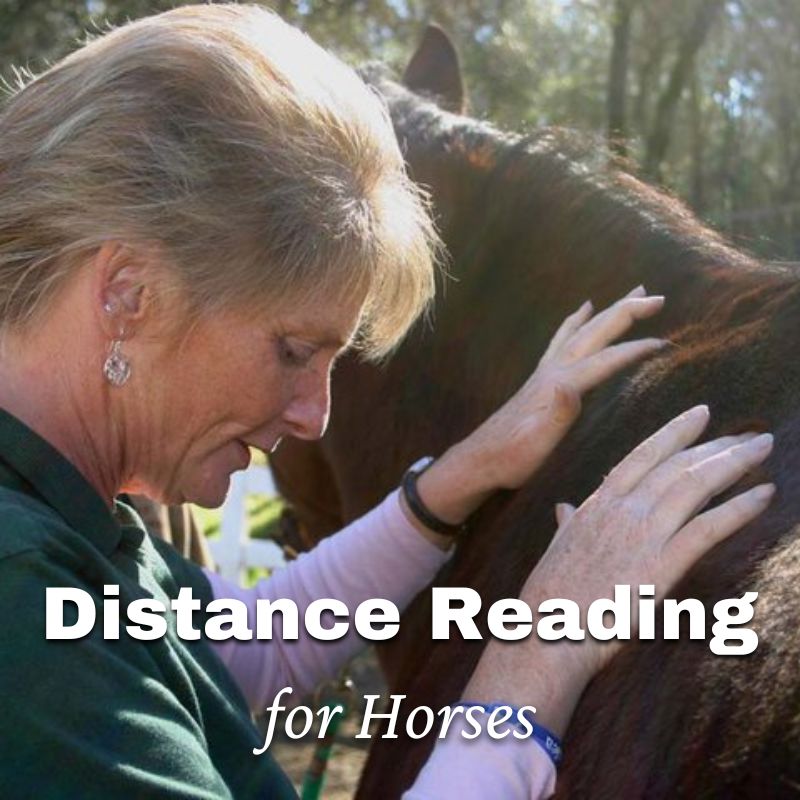
Distance Reading for Horses
Are you wondering what is going on with your horse? Spending thousands $$ on saddle fit, mysterious colic, lameness, or other health concerns and just not get the answers you are looking for?
April has the intuitive ability to energetically scan the horse’s body to check for misalignments in skeletal and cranial bones and explain to you how to work on it yourself in her videos that are on watch instantly format. Also, the emotional side of the horse is addressed as well as asking the body if there are any bacterial or viral issues it is working on.
Unlocking the Secrets of Holistic Horse Care: Insights from the Equine Musculoskeletal Program
In the world of horse care, understanding the musculoskeletal system is vital for ensuring the health and performance of our equine companions. In a recent podcast episode, experts from Holistic Horseworks shared invaluable insights into their musculoskeletal program, shedding light on the importance of holistic approaches in equine health.
6 Must-Know Hore Care Tips for Winter
In this comprehensive guide, we'll share five essential cold weather horse care tips straight from the experts at Holistic Horseworks.Whether you're dealing with freezing temperatures, icy conditions or relentless mud, these strategies will help you keep your horse happy and healthy through even the harshest of winters.
Equine Vaccines: What’s In Them and How to Help Your Horse Naturally
Vaccines are often considered a cornerstone of equine health, but have you ever wondered exactly what’s in them, or how they might be affecting your horse’s long-term health?
Horses Are Talking, Are You Listening?
Holistic equine expert April Love wants you to know: your horse is speaking. And once you learn how to listen, everything changes. In her recent appearance at the Holistic Horse Conference, April sat down with Dr. Jeff Grognet and animal communicator Joan Ranquet to share her revolutionary approach to equine wellness.
How a Distance Reading CHANGED Kimberly and Her Horse
In this interview, holistic healing expert April Love uncovers the deep, often invisible threads connecting horse and human wellness. Join Kimberly, host of The Backyard Horse Enthusiast, as she shares her transformative experience with April's intuitive healing techniques.
Is It Really a Training Problem, or Is Your Horse in Pain?
If your horse bucks, resists the canter, or just feels off under saddle, the first thing many people assume is that it’s a training issue. Maybe the horse is being stubborn, or maybe it just needs more groundwork. But I want to let you in on something I’ve seen over and over again—those “training problems” are almost always your horse trying to say, “Ouch, that hurts!”
Did You Know That Saddle Fit Issues Are Really Horse Body Issues?
Saddle fit isn’t just about the saddle — it’s about the ever-changing body of the horse beneath it. While it’s tempting to invest in custom saddles or quick fixes like padded inserts, lasting comfort and performance come from addressing the root of the issue: your horse’s physical balance and symmetry.
Useful, Helpful Tips and Tricks for Horse Care | April Love’s Interview on The Backyard Horse Enthusiast
What would you do if your horse was limping, colicking, or spooking—and no one could tell you why? That question lit a fire in April Love that would grow into a global mission: helping horse owners uncover the root causes of mystery lameness, behavioral issues, and chronic pain that traditional methods often miss.
How to Find the Cause of Lameness in Horses
When a horse shows signs of lameness, pinpointing the exact cause can be challenging due to compensatory mechanisms. Horses often redistribute weight and movement to avoid pain, making the actual injury difficult to locate. Here’s a practical step-by-step guide to help you identify the root cause of lameness in horses.
Dogs Love Bodywork, Too! (Prevents ACL Tears and Hip Displaysia.)
If you’ve ever watched your dog run and noticed something a bit off—like both hind legs moving together or noticeably dragging their toes—it might be more than just an aging issue or a minor injury. Proactively managing canine skeletal health can prevent long-term joint issues such as hip dysplasia and ACL tears.

